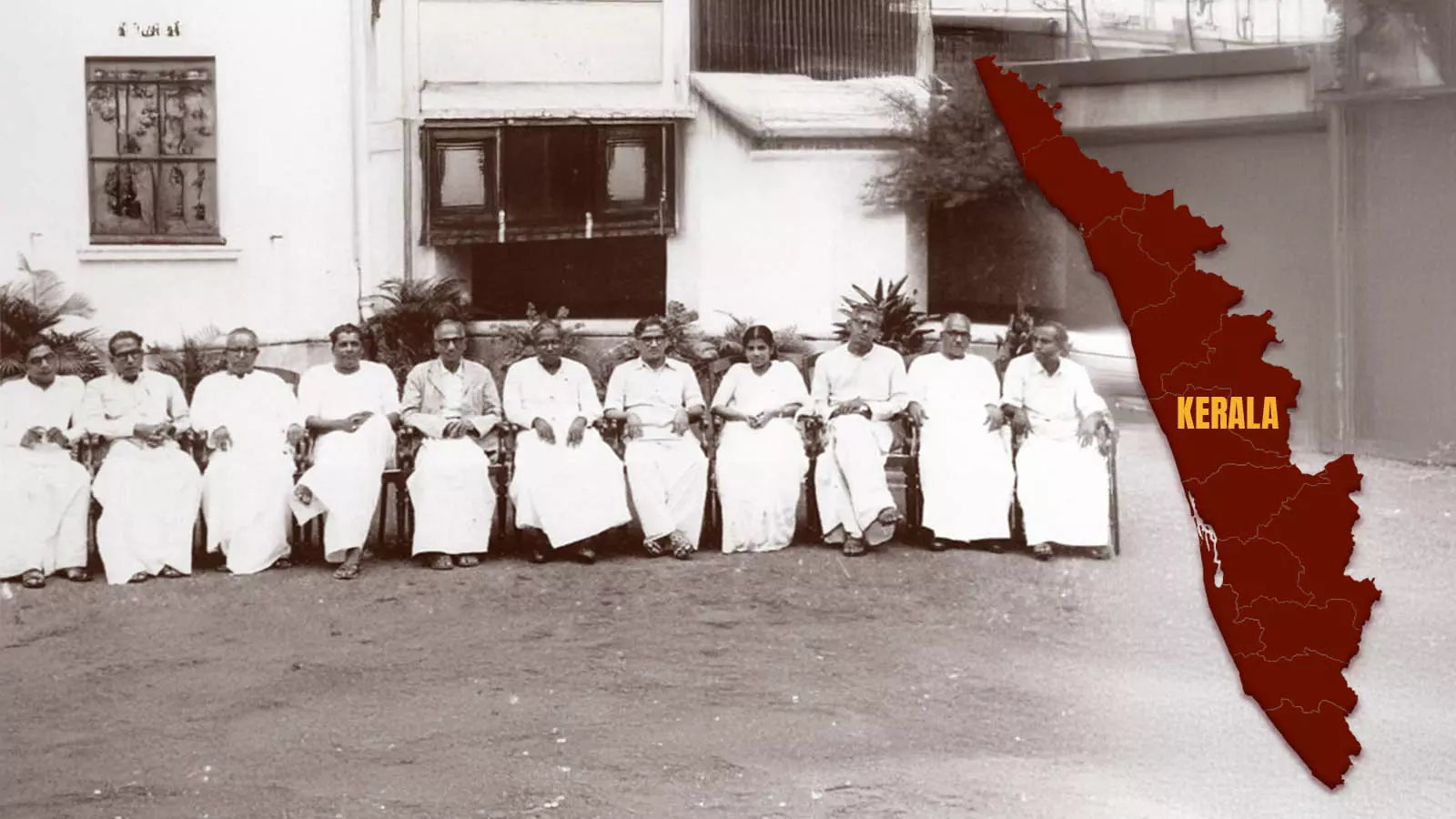
Historian reveals how UK, US intelligence helped topple Kerala communist govt in 1959
New evidence from declassified British files shows Congress leaders worked with MI5, MI6, and CIA to topple EMS Namboodiripad's administration in 1959

Stories about the role that America's Central Intelligence Agency (CIA) played in Kerala’s Vimochana Samaram (liberation struggle) of 1959, which toppled the world’s first-ever elected communist government the same year, are not new to historians, but new revelations have given the episode a fresh weight.
British historian Paul McGarr recently wrote a piece for The Indian Express, which strikingly discussed the intelligence agents infiltrating trade unions and the workers of the Congress party receiving foreign training to help overthrow the two-year-old communist government led by the late EMS Namboodiripad.
The reluctance of Jawaharlal Nehru, the country’s first prime minister, contrasted with the proactive roles of his government colleagues, Govind Ballabh Pant and Morarji Desai, adds another dimension to the matter. Pant was the Home Minister then, while Desai was the Finance Minister.
Alarmed that Kerala was being touted internationally as “The Indian Yenan”, the then-British prime minister Harold Macmillan authorised a “Special Political Action” programme to curb the CPI’s influence.
The article, ‘When Indian government, British intelligence and the CIA joined hands to spy on communists in Kerala’, has placed the Congress under renewed scrutiny, alleging that it worked hand-in-glove with Western intelligence agencies to unseat the communist government in 1959.
Also read: Kerala governor’s circular on ‘Partition Horrors Day’ triggers fresh rift with govt
Declassified British files
Drawing on recently declassified British files, McGarr’s article contends that the United Kingdom’s (UK) MI5 and MI6, along with the CIA, mounted covert operations in coordination with senior Congress leaders and India’s Intelligence Bureau (IB) to bring down the Namboodiripad administration.
The disclosures challenge the long-held framing of the Vimochana Samaram as a purely home-grown uprising against communist policies. Instead, McGarr’s archival evidence points to an organised foreign intervention aimed at removing an elected government for ideological and strategic reasons in the thick of the Cold War.
Also read: Malayalam cinema: Why Adoor's criticism of Kerala's film funding model falls flat
While the CIA’s role in funnelling money to Congress politicians and anti-communist trade unions has been hinted at in past memoirs and research, McGarr’s work adds detailed evidence of Britain’s parallel campaign.
Alarmed that Kerala was being touted internationally as “The Indian Yenan”, after the Chinese revolutionary base, the then British Prime Minister Harold Macmillan authorised a “Special Political Action” programme to curb the CPI’s influence.
This included a covert training scheme that brought Congress leaders and union organisers to the UK for intensive anti-communist instruction. The plan had the approval of IB chief B N Mullik and was politically green-lit by Pant and Desai.
Also read: Ayyappan Theeyattu, Kerala’s ritualistic theatre form, opens its doors to a female artist
Nehru, though guarded, reportedly conceded that British intelligence might be useful in certain situations.
'Nehru proved less enthusiastic'
“Winning Indian political approval, and that of India’s Prime Minister, Jawaharlal Nehru, was another matter. A direct approach to Nehru through his private secretary, M O Mathai, was considered by the British too risky. Instead, the Commonwealth Secretary, Lord Home, was dispatched to New Delhi on a secret mission to secure Indian government support for a collaborative covert operation targeting the CPI in Kerala.
“Having met Govind Ballabh Pant, India’s Minister for Home Affairs, Morarji Desai, the Union Finance Minister, and Nehru himself, Lord Home reported back to London that Pant and Desai were firmly in favour. Nehru proved less enthusiastic. The Indian premier did, however, concede that it would be useful for the Indian government to be able to call on UK intelligence assistance in certain circumstances”, reads the article.
Also read: Award for Kerala Story: Kerala CM says it's an insult to Indian cinema's legacy
The British archives cited by McGarr record how the trainees returned to India and were “infiltrated into the Indian National Trade Union Congress,” bolstering its ability to counter CPI-aligned unions.
The CIA’s funding and Britain’s cadre-building efforts complemented each other, creating sustained political pressure on the Kerala government.
The unrest reached a peak in 1959, with mass protests, police firing, and political paralysis. Nehru’s government imposed President’s Rule in July, dismissing the Namboodiripad ministry — a move that McGarr’s article situates firmly within a framework of externally aided regime change.
Kerala op was not isolated
The academic, who teaches intelligence studies at King’s College London, writes that the Kerala operation was not an isolated case. It mirrored interventions in other newly independent nations where Western powers feared communist electoral success could become a model for the developing world.
For India, the episode exposes the gap between its official posture of Non-Alignment and the behind-the-scenes willingness of key leaders to work with foreign intelligence agencies.
By reviving the charge that Congress colluded with Western intelligence to unseat a democratically elected government, McGarr’s Indian Express piece has the potential to reopen a politically sensitive debate.
For the Left, it strengthens a decades-old claim of foreign-funded subversion. For the Congress, it raises difficult questions about its Cold War-era conduct, just as it seeks to position itself as a defender of democratic norms today.

